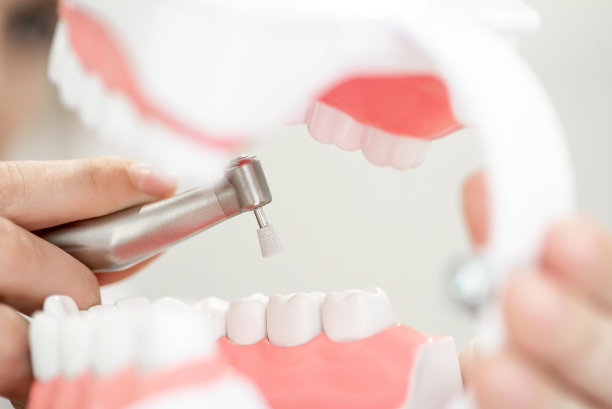Summary: Dental implants serve as an effective solution for tooth loss, offering a more permanent option than traditional dentures or bridges. However, their success relies on a multitude of factors that must be carefully considered before and after the procedure. This article outlines essential precautions that ensure successful dental implantation for optimal oral health and long-lasting results. It discusses the importance of selecting a qualified dental professional, understanding individual health needs, committing to proper aftercare, and maintaining regular follow-ups. Each of these factors plays a critical role in enhancing the durability and effectiveness of dental implants, ultimately leading to a healthier smile.
1. Selecting a Qualified Dental Professional

The first step in ensuring a successful dental implantation is choosing a qualified dental professional. A well-trained dentist or oral surgeon with specialized experience in dental implants can make all the difference in the outcome of the procedure. Prospective patients should conduct thorough research, looking into the dentists qualifications, credentials, and successful case histories.
Moreover, patient testimonials and reviews can provide valuable insights into the professionals skills and level of care. A dental expert who is well-versed in the latest techniques and technologies in implant dentistry can significantly increase the chances of a successful procedure.
Lastly, a detailed consultation prior to the dental implant surgery can help patients understand the process fully, allowing them to ask pertinent questions and clarify doubts. Clear communication between the patient and dentist sets a solid foundation for a successful experience.
2. Understanding Individual Health Needs
Each individuals health plays a crucial role in the success of dental implants. Before undergoing the procedure, it is essential to evaluate overall health, including conditions like diabetes, autoimmune disorders, or gum disease. These factors can affect healing and integration of the implant with the jawbone.
Patients should provide their dental professionals with a full medical history. This information allows dentists to tailor the procedure to individual health needs and potentially take preventive measures, such as prescribing antibiotics or advising on lifestyle changes, to maximize the success of the implant.
Furthermore, pre-treatment imaging, like X-rays or CT scans, can give the dentist a comprehensive view of the jawbone density and spatial arrangement. This vital information aids in determining the best course of action for implantation and minimizing complications after surgery.
3. Committing to Proper Aftercare
After the dental implant surgery, dedicated aftercare is paramount for ensuring long-lasting results. Patients must adhere strictly to the post-operative instructions provided by their dental professionals, which usually includes guidelines for managing pain, swelling, and oral hygiene practices.
Proper oral hygiene is essential, as neglect can lead to infections, which could jeopardize the implants longevity. Regular brushing, flossing, and using antimicrobial mouthwashes will help maintain the surrounding gum health, promoting a successful integration of the implant.
Moreover, dietary choices can also influence the healing process. Patients should avoid hard or chewy foods in the initial healing phase to prevent stressing the implant before it has fully integrated. Following a nutritious diet can further aid in recovery and support oral health.
4. Maintaining Regular Follow-Up Appointments
Regular follow-up appointments with the dental professional are essential for monitoring the progress of the dental implants and ensuring continued oral health. During these visits, dentists can assess the healing process, detect any signs of problems early, and provide professional cleanings that prevent gum disease.
Patients are encouraged to discuss any discomfort or concerns during these follow-ups, as this allows the dentist to intervene before minor issues become significant problems. Dental implants need a lifetime of care, just like natural teeth.
Finally, maintaining routine check-ups not only helps in keeping the implants secure but also promotes overall oral health. Regular assessments can help in early identification of plaque buildup, cavities, or gum disease, enhancing the longevity of both the implants and remaining teeth.
Summary:
In conclusion, ensuring a successful dental implantation involves a series of crucial precautions. From selecting an experienced dental professional and understanding individual health needs to committing to post-operative care and maintaining regular follow-ups, each factor contributes significantly to the procedures success. Awareness and proactive management of these essential aspects can lead to optimal oral health and durability of dental implants.
This article is compiled by Vickong Dental and the content is for reference only.
Vickong Dental
Vickong Dental is a large medical group established in Hong Kong in 2008 by professors from well-known medical universities in Guangdong and Hong Kong, as well as medical doctors from key national '985' universities (including Master's supervisors and senior professors). The chain of branches brings together expert dentists with PhDs and Master's degrees from Hong Kong and Mainland China, committed to providing high-quality dental treatment.
"Vickong Dental Practices the University Motto of 'Healing and Serving Society,' with a Stable Operation for Sixteen Years. It Has Been honored with Hong Kong Enterprise Leaders's Choice,' and is a Global Trusted Implant Center for the Nobel Implant System. Recommended by Hong Kong Metro Broadcast and Guangdong Television, it Serves Customers from Over Thirty Countries and Regions, Gaining the Trust and Favor of Citizens from the Guangdong-Hong Kong-Macau Greater Bay Area and Surrounding Cities.

Thousands of customers' unanimous praise
The most recognized and highly recommended dental service by customers in the Guangdong-Hong Kong-Macau Greater Bay Area
We Ensure You Receive Detailed Care and Attention Here
Hong Kong standards, Shenzhen prices, Your Trusted English-speaking dentists

Vickong Dental Medical-Grade Instrument Disinfection Process
Vickong Dental Medical-Grade Instrument Disinfection Process

Vickong Dental Chain: A Warm and Comfortable Environment for Treatment






Appointment Hours

Q&A
Why choose Vickong Dental?
Vickong Dental practices the university motto 「Medicine to Benefit Society」, with each branch bringing together highly qualified dentists with doctoral and master’s degrees from Hong Kong and the Mainland, and has maintained seventeen years of steady operation。Recipient of 「2024 Hong Kong Enterprise Leaders Brand」, 「2025 Hong Kong Enterprise Leaders Brand」, a Nobel Biocare Global Trusted Implant Center, and a brand recommended by Metro Radio Hong Kong and Guangdong TV。
To date, we have served customers from more than thirty countries and regions,earning exceptionally high word-of-mouth recognition and trusted recommendations from residents across the Guangdong-Hong Kong-Macao Greater Bay Area and surrounding cities
We have eight major branches in Zhuhai、Shenzhen,and a consultation and service assurance center in Hong Kong,so you can book a free consultation at any time for any questions,which is very reassuring.
If I do not accept the quotation after the CT scan, will I be charged??
No! As long as the actual treatment has not started, you will not be charged any fees.
Will there be any additional charges during the treatment process?
No, there won’t be any additional charges. Before treatment begins, we will clearly explain the treatment plan and its corresponding fees. Only after the patient agrees and signs the consent form will we proceed with the dental service.
Can I pay in Hong Kong dollars?
Yes. Vickong Dental accepts payment in Hong Kong dollars. The amount will be converted based on the exchange rate of the day, and the applicable rate will be clearly communicated to you in advance.
Can I reschedule my appointment at any time?
Yes. Please contact us via **WeChat** or **WhatsApp** as early as possible, providing your original appointment time and details, along with your preferred new date and time slot for rescheduling.













